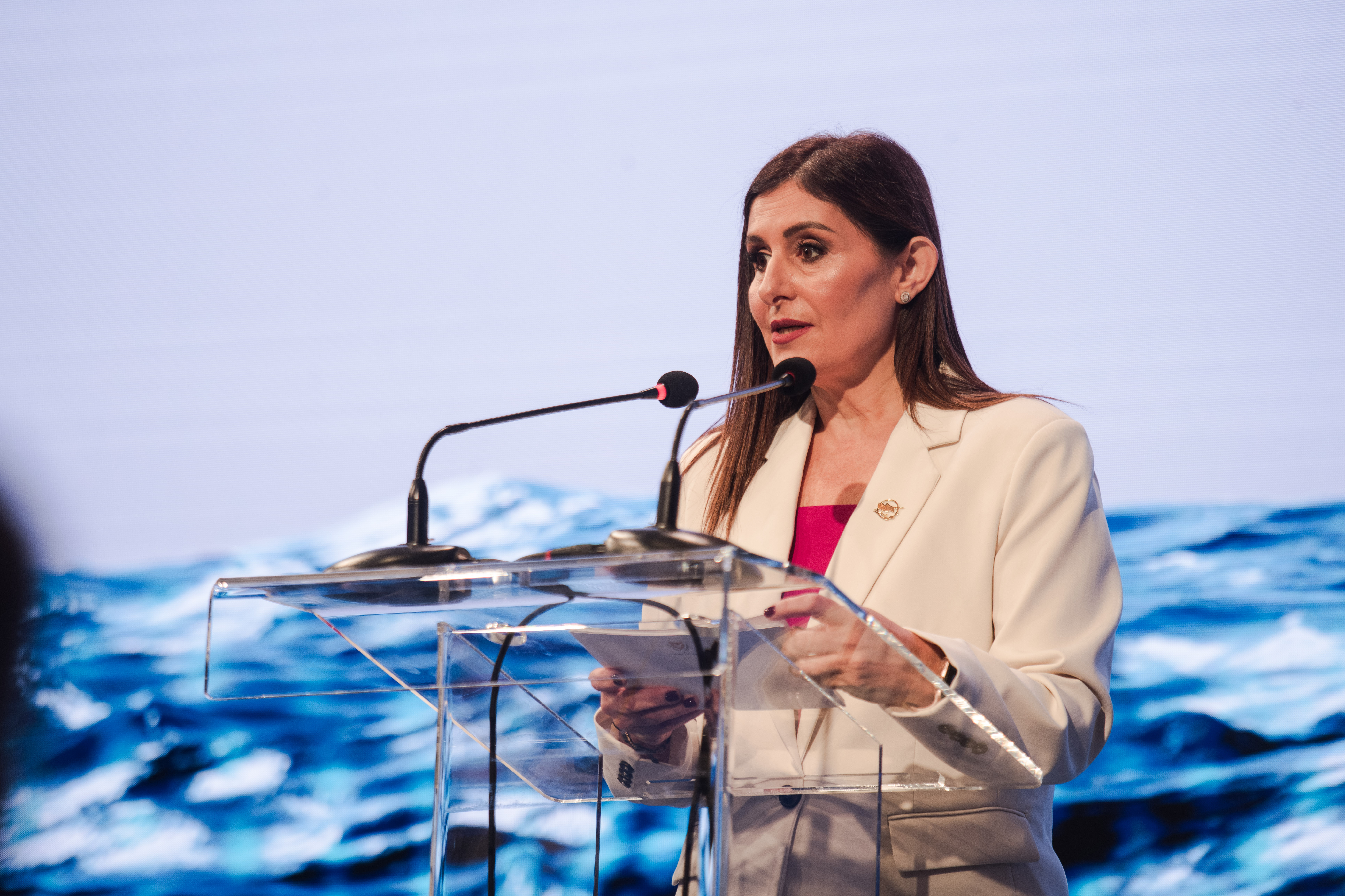Limassol will host a series of major maritime events during Cyprus’ EU Council Presidency in 2026, with shipping set as one of the government’s top priorities, according to Shipping Deputy Minister Marina Hadjimanolis.
In an interview with Entrepreneurial Limassol, a periodical published by the Limassol Chamber of Commerce and Industry (Evel), Hadjimanolis said that this year’s Maritime Cyprus conference “has now become an institution and one of the largest maritime conferences in the world”.
She added that it “exceeded all expectations” in terms of turnout and the quality of panel discussions.
Hadjimanolis mentioned that the presence of shipowners, regulators, senior executives and international organisations, including the IMO Secretary-General and two EU Commissioners, demonstrated both the weight of the event and the broader support for Cypriot shipping.
As she explained, this support comes at a crucial moment. Shipping will feature prominently in the first half of 2026, when Cyprus holds the Presidency of the Council of the EU.
The Shipping Deputy Ministry will organise a number of high-level meetings, including the informal Council of EU ministers responsible for shipping in April in Nicosia.
Here, a declaration on maritime education is expected to be adopted. She said Limassol will also host a conference on the same theme, while European Maritime Day events, along with a meeting of EU maritime administration directors, will take place in the city in May.
Hadjimanolis said strengthening the Cyprus flag remains central for the government.
“We have developed policies and taken actions, such as the digitalisation of the services of the Deputy Ministry of Shipping,” she noted, adding that Cyprus continues targeted promotional efforts through meetings with shipowners and participation in international conferences.
She stressed that the registry still has room to grow and that improving service delivery is key to attracting more tonnage.
On the cruise sector, she acknowledged that geopolitical tensions have forced several companies to adjust itineraries across the Eastern Mediterranean.
Even so, she said that “there is increased interest from international companies and neighbouring countries for collaborations”, particularly for new itineraries that make use of Cyprus’s strategic location and infrastructure.
She added that the first phase of the National Cruise Strategy has been completed, while the Action Plan is now being drafted in cooperation with all stakeholders.
This plan, she said, will outline targeted actions based on the sector’s real needs and challenges, forming a roadmap for strengthening Cyprus’s competitiveness in cruising.
“I am convinced,” Hadjimanolis concluded, “that, through coordinated actions, close cooperation with all stakeholders and realistic planning, our country can further strengthen its position as an attractive and competitive cruise destination in the Eastern Mediterranean, despite the challenges of the geopolitical environment.”






Click here to change your cookie preferences